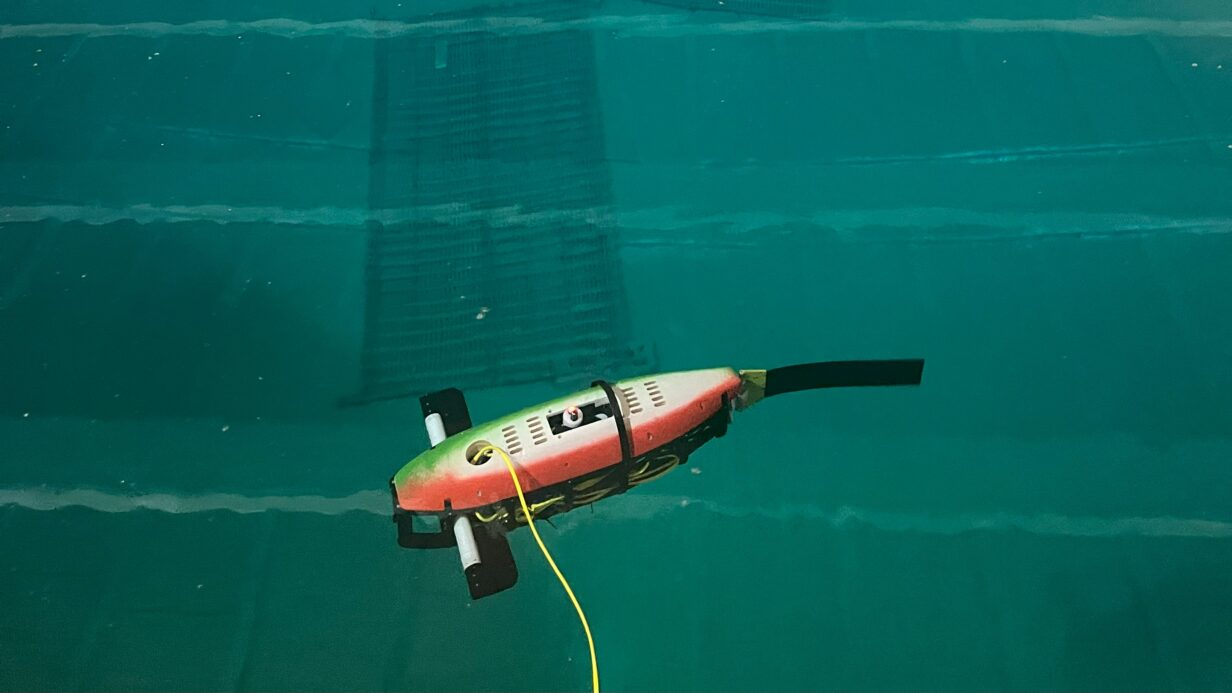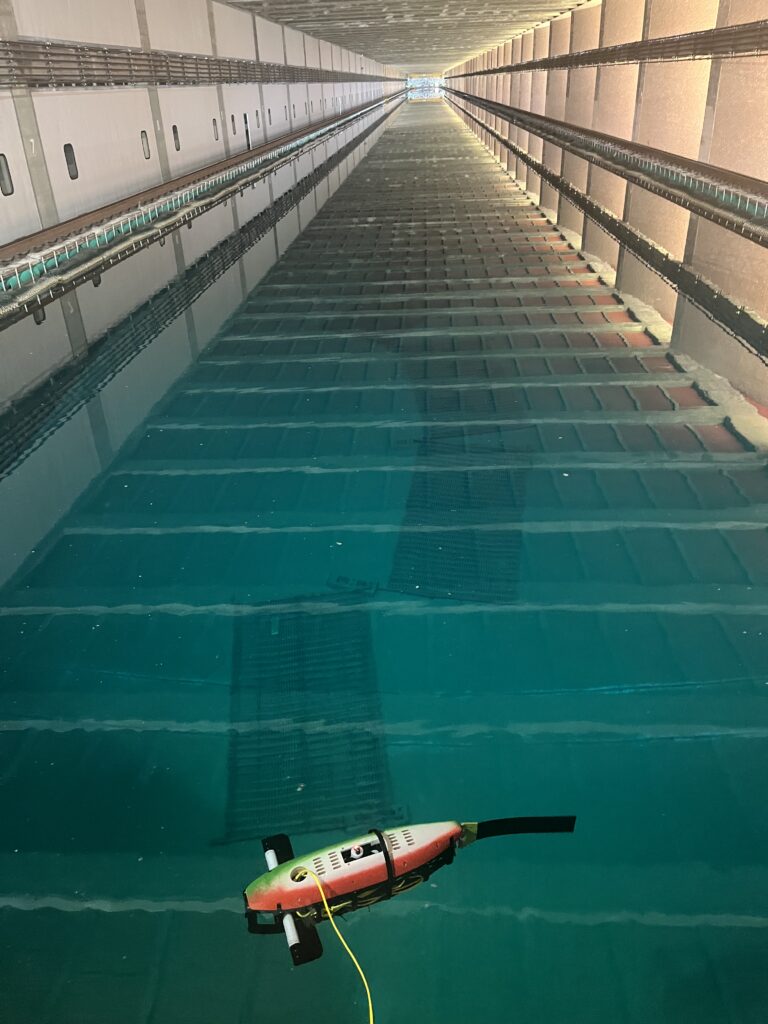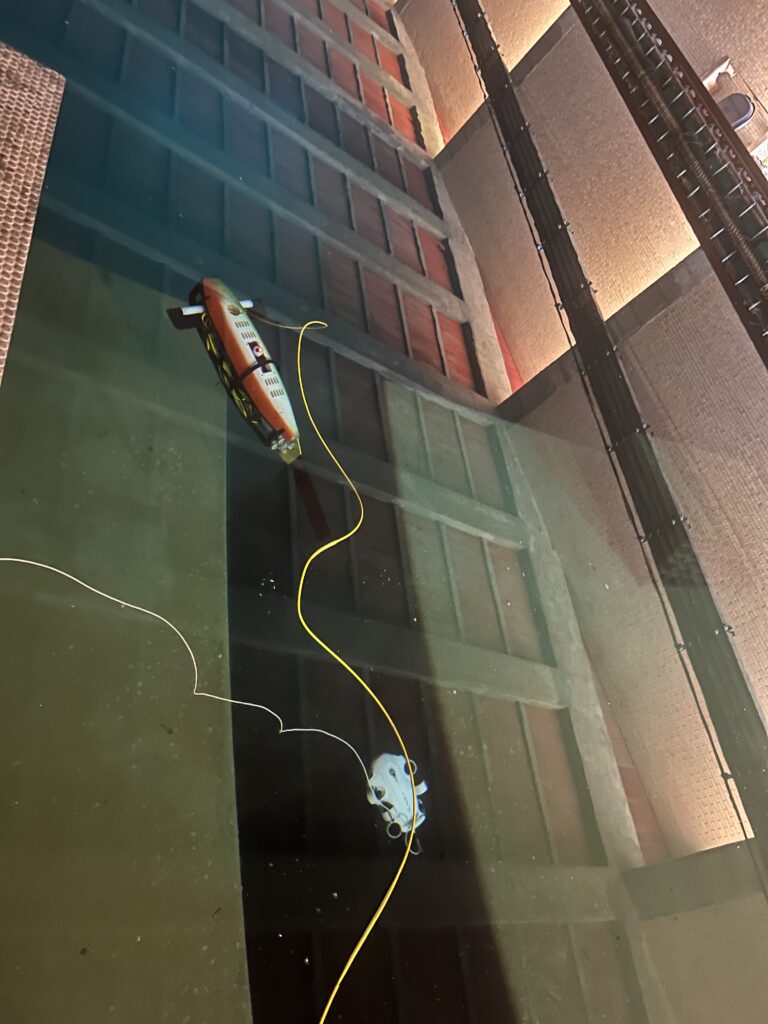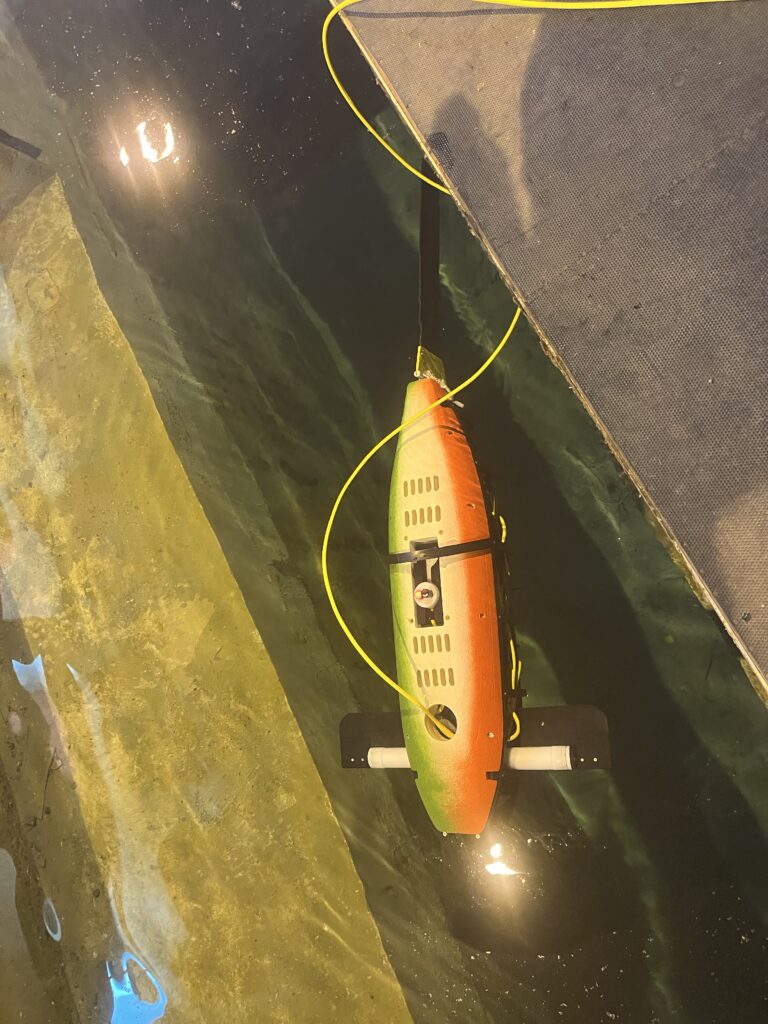
A milestone day for innovation and research: PERSICO, the first prototype of a fish-shaped underwater robot was successfully tested in INM’s towing tank, marking a major achievement in a joint project between the Institute of Marine Engineering of the National Research Council of Italy (CNR-INM) and Sapienza University of Rome, funded by the Italian Navy. The success of this initiative was made possible thanks to the enthusiastic collaboration of all departments across the Institute, whose commitment and teamwork played a key role – special thanks go to everyone involved.
Entirely designed by researchers at CNR-INM & Sapienza University, the robotic fish represents a significant step forward in developing nature-inspired propulsion systems that combine efficiency, low noise, and environmental camouflage.
The robot’s cutting-edge biomimetic propulsion system is the result of extensive numerical and experimental research carried out at the Institute’s facilities, particularly within the CNR’s hydraulic channel. There, researchers studied the complex mechanisms governing fish locomotion, aiming to replicate their efficiency and agility through advanced technological solutions.
Thanks to a multidisciplinary approach, the project brings together expertise in naval propulsion and transport systems with the latest advancements in bio-inspired robotics, digital motion control algorithms and smart materials. The outcome is a propulsion system that mimics natural fish swimming, using flexible deformation and undulatory movement to minimize environmental impact and enhance performance in monitoring and surveillance missions.
This new generation of underwater robots is designed for dual-use applications: from environmental protection to strategic and operational support. It paves the way for future developments in autonomous and sustainable marine robotics. The successful testing demonstrated not only the viability of the design but also the potential of the system to operate in complex scenarios where stealth and adaptability are crucial.




